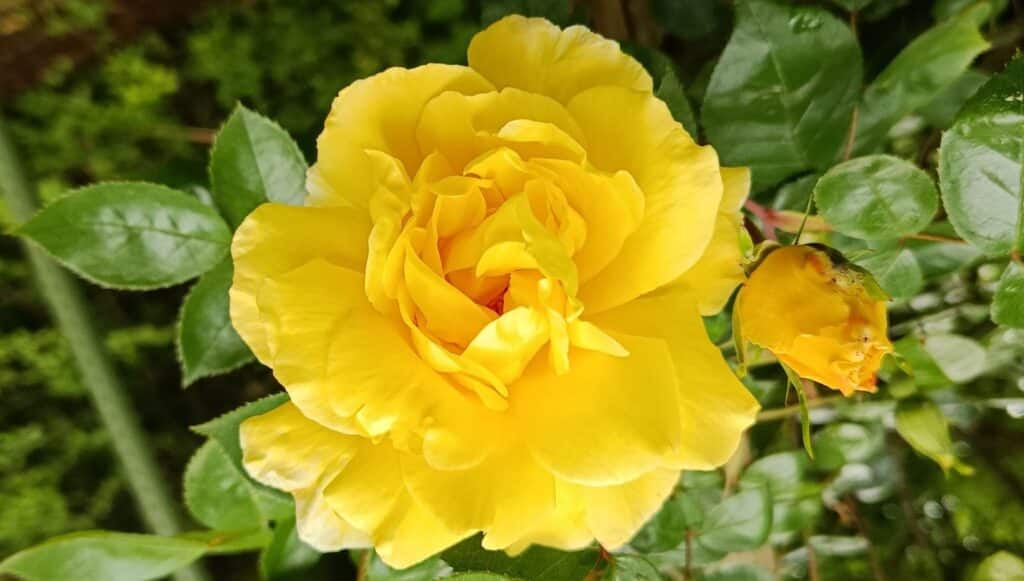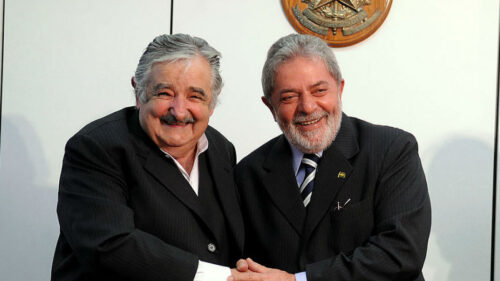Latin American politics have long fascinated and unsettled the world. From afar, the region looks like a vast political laboratory where everything is tried before it’s exported: revolutions, liberalizations, debt traps, military coups and grassroots awakenings. It’s where ideology stretches to extremes and sometimes loops back on itself. Even the humblest figures, if they make it to the top, are watched with the intensity usually reserved for prophets or pariahs.
Among those, former Uruguayan President José “Pepe” Mujica, who passed away on Tuesday, May 13, following a battle with esophageal cancer, and his partner, former Vice President Lucía Topolansky shine with a particular kind of light — weathered, quiet, undramatic. Their paths didn’t cross in academia or think tanks but in prison and the underground. They were guerrillas, members of the Tupamaros who resisted Uruguay’s authoritarian turn in the 1960s and 70s. Authorities captured them, tortured them and disappeared them from public life for over a decade. Their love didn’t grow from comfort or shared leisure. It grew in silence, resilience and coded messages smuggled past prison guards. What they built together wasn’t romantic in the conventional sense. It was revolutionary in the truest one.
They eventually emerged from that darkness not as martyrs or bitter survivors, but as political leaders — deeply human ones. Mujica and Topolansky believed in coherence: between what one says and how one lives. Few heads of state have lived with that kind of integrity. Mujica and Topolansky chose a leaking roof, the company of dogs, shared chores and local soil over pomp and protocol. They treated collective struggle not as a slogan but as daily practice. They could have chosen comfort and applause. Instead, they stuck with dignity and mud.
Mujica made political power serve lived ethics, not personal ambition.
Mujica served as president from 2010 to 2015. He is remembered for progressive policies such as legalizing same-sex marriage and marijuana, decriminalizing abortion and expanding social programs. But what struck me most was how he did it: without grandeur, without selling his soul. He refused to live in the presidential palace, donated most of his salary and kept working his land.
Topolansky served in both houses of parliament and made history as Uruguay’s first female vice president. She was not a decoration but a strategist, negotiator and force. She never leaned on the title “First Lady.” She was never just the wife of Mujica. She was always Lucía.
Their influence reached far beyond Uruguay. Mujica’s speeches — especially the one at the 2012 United Nations Conference on Sustainable Development (Rio+20) — went viral before we used that term. “We have invented a mountain of superfluous needs,” he warned, “and it’s our lives we are squandering.” You could hear his tired love for humanity. He didn’t want to dominate the world. He wanted us to slow down and be less cruel to it — and to ourselves. Some called him “the world’s humblest president,” but that’s too simplistic. He was grounded, coherent and very aware of the cameras.
Topolansky was less quoted, less meme-ified. But she worked. She focused on housing, education, gender equity and rural development. She negotiated across lines and kept things moving when others got stuck in rhetoric. In a political era so flooded with noise, she remained attuned to reality — the ground under her feet, the people in her district. She didn’t posture. She acted.
And then, of course, there was Manuela — the three-legged dog who limped across their flower farm and occasionally onto presidential carpets. A farming accident had left her with only three legs, but they never replaced her with a more “appropriate” pet. She was family. She snored through interviews, sniffed microphones and ignored ceremony with perfect timing. Mujica once said Manuela taught him more about loyalty and presence than most humans. In some quiet way, she was the final member of their small republic: love, resistance and imperfection on four — or three — legs.
I don’t know what comes next for Uruguay. Or for the rest of us, for that matter. But I do know this: whenever I feel the fog of cynicism rolling in, I remember that Mujica and Topolansky existed. They shared a home, a cause, a field of flowers and the belief that politics, when rooted in life and not spectacle, might still serve something more than power.
To Lucìa Topolansky, compañera in the truest sense of the word: I offer a rose and a quiet hug.

The views expressed in this article are the author’s own and do not necessarily reflect Fair Observer’s editorial policy.
Support Fair Observer
We rely on your support for our independence, diversity and quality.
For more than 10 years, Fair Observer has been free, fair and independent. No billionaire owns us, no advertisers control us. We are a reader-supported nonprofit. Unlike many other publications, we keep our content free for readers regardless of where they live or whether they can afford to pay. We have no paywalls and no ads.
In the post-truth era of fake news, echo chambers and filter bubbles, we publish a plurality of perspectives from around the world. Anyone can publish with us, but everyone goes through a rigorous editorial process. So, you get fact-checked, well-reasoned content instead of noise.
We publish 3,000+ voices from 90+ countries. We also conduct education and training programs
on subjects ranging from digital media and journalism to writing and critical thinking. This
doesn’t come cheap. Servers, editors, trainers and web developers cost
money.
Please consider supporting us on a regular basis as a recurring donor or a
sustaining member.
Will you support FO’s journalism?
We rely on your support for our independence, diversity and quality.









Comment